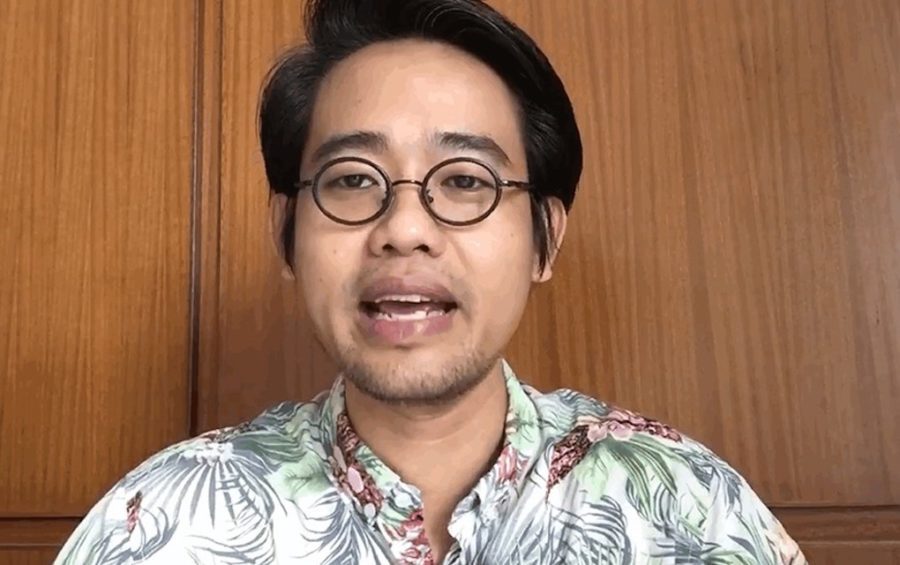U.N. officials raised concerns that Cambodian authorities did not fully investigate evidence into the disappearance of Thai pro-democracy activist Wanchalearm Satsaksit, in spite of the government’s insistence that it had pursued all available leads.
In a new batch of correspondence from July and August, released on Monday, U.N. human rights experts said they had received reports that Wanchalearm, a dissident affiliated with the United Front for Democracy against Dictatorship who was allegedly abducted in front of a Chroy Changvar commune condominium on June 4, had traveled abroad and returned to Cambodia after 2017, despite the government claiming that the activist’s Cambodian visa expired on December 31, 2017.
The U.N.’s letter, sent on July 15, also outlined a timeline of events since Wanchalearm’s disappearance, saying a Cambodia-based lawyer had filed a complaint to the Phnom Penh Municipal Court on July 8. The letter also raised concerns about there being no new information “despite the registration number of the car involved being known and there being multiple witnesses.”
“While we do not wish to prejudge the accuracy of these allegations, we are deeply concerned about the lack of progress in the investigation into the alleged abduction and enforced disappearance of Mr. Wanchalearm Satsaksit and are seriously worried for his safety,” the letter said.
The U.N. officials asked Cambodian officials for more detailed information about the investigation, as well as to present the letter to Interior Minister Sar Kheng.
Interior Ministry spokesperson Khieu Sopheak, however, said he had not seen the letter, and asked that the U.N. send evidence rather than statements.
“We would be very happy in the case that the U.N. itself has documents to clarify that there really was an [abduction],” he said. “Please show evidence and bring information for clarification to our National Police Commissariat, and we will continue further cooperation.”
In response to the U.N.’s July 15 letter, Cambodia’s permanent mission to the U.N. replied on August 12 reiterating previous claims: that Wanchalearm was not found to be living in Phnom Penh’s Mekong Gardens condominium, and that the Blue Toyota Highlander captured on surveillance footage was not registered with the Transportation Ministry.
The letter added that authorities had interviewed three witnesses, who “confirmed that there were no reports of abduction in the said area.”
When asked whether Cambodian authorities had interviewed only three witnesses near the Mekong Gardens condominium, Sopheak said he did not know.
Residents in the area told VOD earlier this month that they were aware of multiple eyewitnesses to the abduction.
The letter did not describe how Cambodian authorities were working with Thai counterparts, but it said the authorities would cooperate with others to find out the truth about the incident and “to find out if there was a real abduction case and if it had really happened in Cambodia.”
National Police spokesperson Chhay Kim Khoeun added on Monday that the government shared the same concerns as the U.N. but could not identify further leads into Wanchalearm’s disappearance. He said that authorities were “trying their best.”
Montana Duangprapa, a lawyer with the organization Thai Lawyers for Human Rights, who is working with Wanchalearm’s family, said that Sitanan Satsaksit, Wanchalearm’s sister, had not been given the opportunity to testify directly to the Cambodian government during the more than three months since Wanchalearm’s disappearance.
The lawyer said the older sister would give the same testimony that she had given to Thai authorities and the media: She was speaking to her brother via Line on June 4, discussing a potential health care-related business idea, when she suddenly heard three or four men speaking another language in the background, and then her brother saying “Argh, can’t breathe” several times.
“The Cambodian government, particularly the prosecutor, needs to ensure all efforts to initiate an investigation of Wanchalearm’s abduction, to determine whether he is still alive or locate his body in case he has died, and to take legal action against the perpetrators that kidnapped and harmed him according to the Kingdom of Cambodia’s criminal justice system,” she said via message. “Further, [the government should] provide information of any progress of the investigation and available information to the sister and the family.”
Montana added that the family’s Cambodia-based lawyer, whom she would not name, had also filed a petition for intervention in the case to the Interior Ministry on July 3. Sopheak, the Interior Ministry spokesperson, said he was unaware of the petition.
Additional reporting by Nhim Sokhorn













